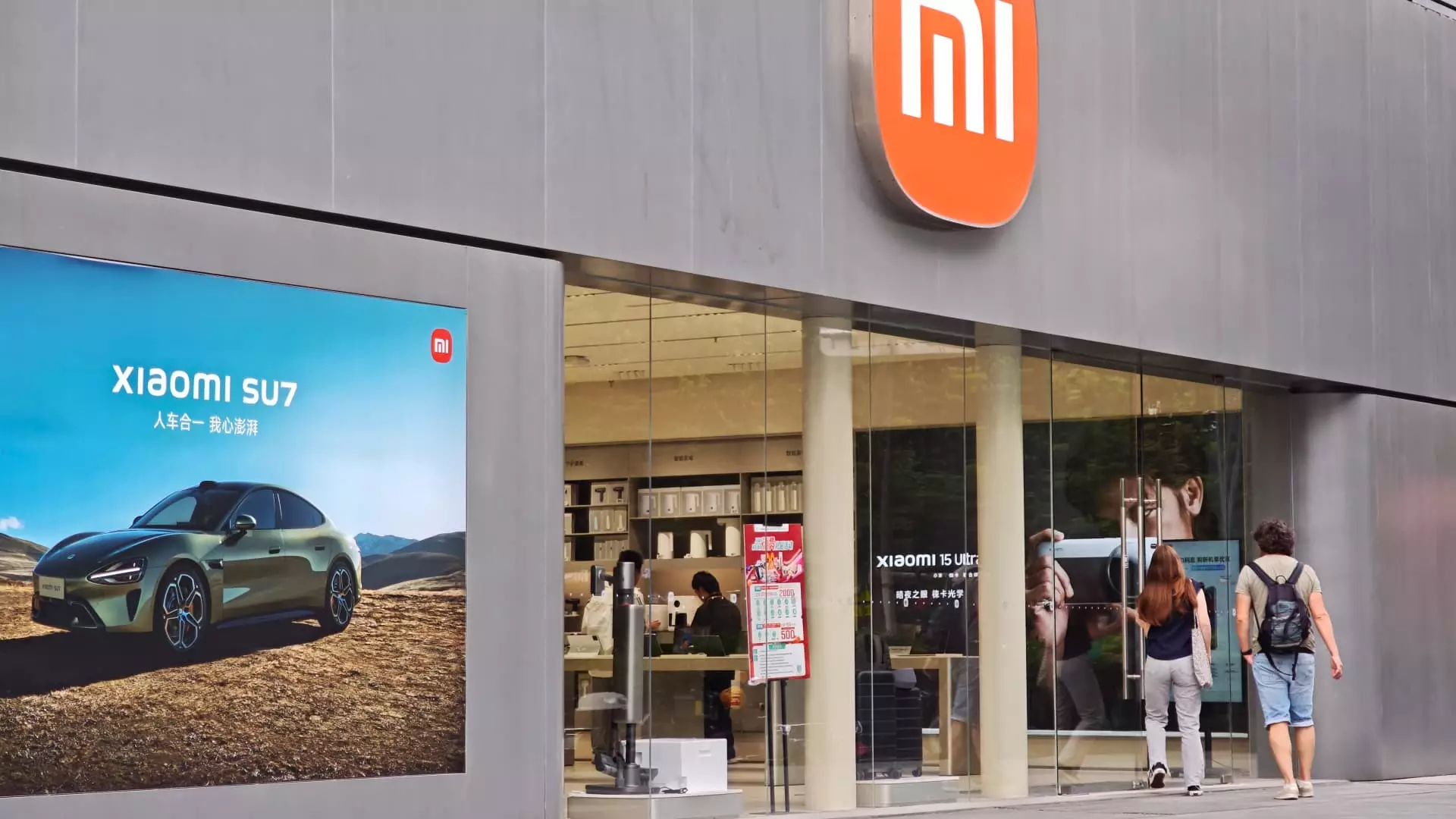In recent weeks, Xiaomi, the Chinese smartphone juggernaut, has revealed an astonishing net profit for the second consecutive quarter, igniting both excitement and speculation in the stock market. While Apple’s growth appears to falter as its stock price faces a 20% decline year-to-date, Xiaomi’s shares have surged by an impressive 45%. These contrasting fortunes raise crucial questions about market dynamics, consumer behavior, and the shifting landscape of global technology.
This article takes a deeper look at Xiaomi’s recent performance, its ambitions in electric vehicles, and the implications of these developments on Apple’s ongoing struggles, aligning itself with a center-right perspective that champions innovation while acknowledging the pitfalls of entitlement.
The Data Behind the Success
Xiaomi’s triumph is grounded in solid numbers. The company reported an adjusted net income of 10.68 billion yuan for the first quarter, surpassing analysts’ expectations. Revenue also exceeded predictions, showcasing the strength of its core business amid an evolving market landscape. Interestingly, even though Xiaomi’s earnings are considerably lower than Apple’s—an inevitable comparison given the latter’s entrenched legacy—the figures hint at a deeper and more transformative shift within the tech sphere.
While Apple’s focus has largely concentrated on premium offerings, Xiaomi has effectively captured a larger market share of the smartphone sector in China—no small feat considering Apple’s longstanding dominance. Analysts from Jefferies are now bullish on Xiaomi’s potential, predicting a price target of 73 HKD, underlining the company’s recent achievements in “AIoT.” This term refers to Xiaomi’s diverse products that integrate artificial intelligence, allowing users to manage home appliances remotely, a feature that some experts argue Apple has overlooked.
Xiaomi’s Drive into Electric Vehicles
Perhaps even more striking is Xiaomi’s ambitious leap into the electric vehicle market. With the company set to launch its YU7 SUV later this summer, the stakes couldn’t be higher. Analysts from Morgan Stanley have flagged this anticipated release as a key catalyst for the firm’s future growth—anticipating a shift in consumer perception that may well outstrip even Tesla’s revered Model Y.
Such aspirations were propelled even further on May 22, when Xiaomi revealed its new Xring O1 chip, designed to power its upcoming flagship smartphone, the 15S Pro. The competitive dynamics couldn’t be clearer: Xiaomi is not merely content with competing against Apple in the smartphone sector; it is strategically encroaching on the automotive front. By offering products that combine household convenience with advanced technology at price points significantly lower than Apple’s, Xiaomi is effectively repurposing consumer expectations and challenging the status quo.
The Change in Consumer Sentiment
The growth of Xiaomi raises critical questions regarding consumer behavior among tech enthusiasts. There’s a palpable shift in sentiment away from perceived elitism tied to brands like Apple towards more diverse and value-driven options offered by Xiaomi. As consumers become more discerning, the demand for innovative yet affordable technology may soon redefine market leaders, compelling companies like Apple to reconsider their pricing and product strategies.
The momentum of Xiaomi is further accentuated by its impressive array of home appliances, collectively representing 22% of its revenue. This diversification could play a crucial role in cushioning the firm against volatility within the smartphone sector and exemplifies a broader trend that sees companies innovating beyond their heritage products. One wonders if Apple, with its stubborn attachment to premium pricing, is becoming increasingly disconnected from this emerging consumer paradigm.
The Pitfalls of Complacency
Despite Xiaomi’s gains, it is essential to remain cautious. Analysts from JPMorgan maintain a more neutral stance regarding Xiaomi, drawing attention to the company’s comparatively slower growth in ecosystem-related revenues. In a technology landscape where services are beginning to eclipse hardware in significance, this could signal a potential pitfall for Xiaomi unless it adapts its strategy accordingly.
Indeed, the juxtaposition between Xiaomi’s accelerating hardware sales and Apple’s subsequent pivot to service-led growth should be a wake-up call. It’s crucial for Xiaomi to evolve beyond mere product innovation and foster a robust service ecosystem that can deliver enduring value. This reflexive adaptability is what will separate the fleeting success from sustainable growth in a future ruled by consumer preference.
By spearheading numerous initiatives, from smartphones to electric vehicles, Xiaomi is undeniably shifting gears in the competitive race against Apple. Its current trajectory offers hope for a broader technological revolution, should it choose to evolve continuously and intelligently. The question remains: will Apple adapt, or will it cling to its legacy as the ground beneath shifts?

